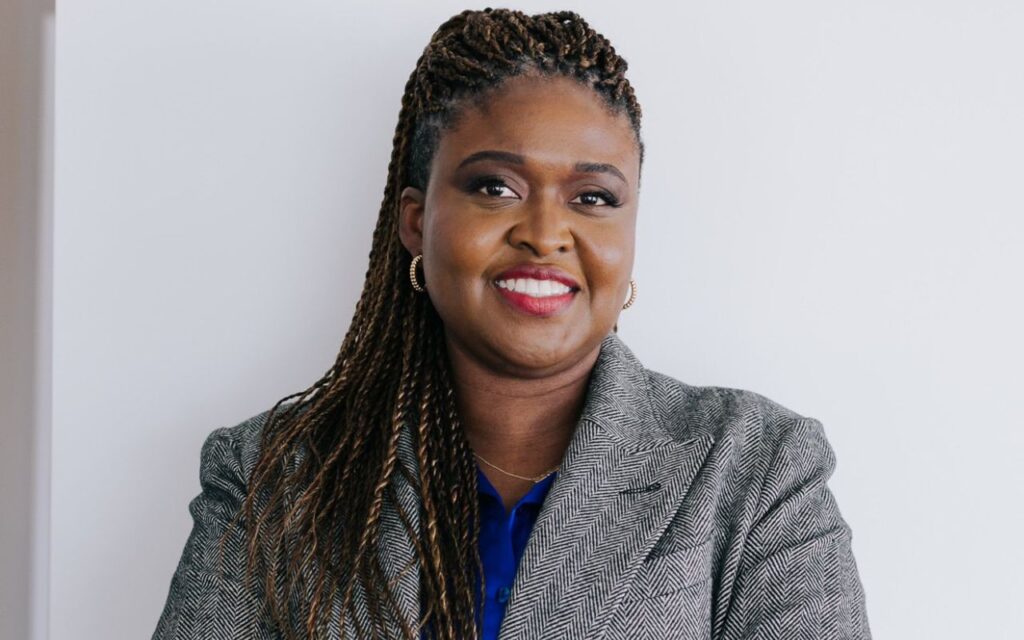
As a Black woman leader, I’ve come to intimately understand the double-edged sword of the “glass cliff.” It’s a familiar scenario that I’ve experienced first-hand: I’m called in when an organization is in crisis and expected to swiftly turn the tide despite limited support. While it’s empowering to be seen as a “fixer,” it’s also a precarious position fraught with unique challenges and immense pressure.
The glass cliff refers to the tendency for women and people of colour to be appointed to leadership positions during times of crisis or downturn — when the chance of failure is highest. This precarious situation sets them up for potential blame if things go wrong, creating a double bind that is particularly daunting for Black women leaders like myself.
I remember the moment I was teetering on the glass cliff vividly. I was offered a pivotal finance leadership role at a financial institution during a significant period of change and complexity. The excitement I felt was quickly tempered by the realization that I was being brought in to clean up a mess — a failed acquisition that had forced a merger of numerous global organizations. I was warned by colleagues that the person before me had burnt out under the weight of the role’s scope.
Navigating the glass cliff
I’m certainly not alone in this experience. Black women CEOs like Ursula Burns at Xerox and Rosalind Brewer at Walgreens were appointed during challenging times for their companies. Just recently, U.S. Vice President Kamala Harris became the Democratic Party’s leading nominee for President with barely 100 days until the election and was immediately labelled by some as a “DEI candidate.”
The pressure in these situations is immense. If we succeed, it’s often seen as expected. But if we falter, it can reinforce negative stereotypes and impact opportunities for other Black women in the future. I’ve grappled with this burden many times, questioning whether my appointment was truly based on merit or simply to fulfill a diversity quota.
In my own experience, I’ve had to navigate pervasive skepticism from colleagues, limited resources, and the constant need to prove my worth beyond my identity. There were countless nights I laid awake, strategizing not just about business decisions, but how to combat the subtle (and sometimes overt) biases that threatened to undermine my authority.
But through these trials, I’ve emerged stronger and wiser. I’ve discovered reserves of resilience I didn’t know I possessed.
Importantly, I was also supported by a leader who understood the immense task ahead and proactively advocated for me in rooms I couldn’t access. He was a mentor and sponsor who leveraged his knowledge and power to bolster my leadership. This type of active mentorship and sponsorship made all the difference.
I’ve learned that my success or failure wouldn’t be determined solely by my own abilities. Often, there is little consideration given to the level and quality of support provided (or not provided) in these roles and environments. Despite this, we endure and strive to excel.

Sparking a change
Organizations must become acutely aware of the glass cliff dynamic and take tangible steps to address it. This includes:
- Providing robust support and resources to leaders appointed during crises.
- Appointing more Black women to top roles during periods of growth and stability, not just turmoil.
- Recognizing and actively mitigating the unique challenges faced by Black women leaders.
- Creating truly inclusive environments that foster the long-term success of leaders.
Ultimately, true equity means having the opportunity to lead in all circumstances — not just when the odds are stacked against us. It’s about being valued for our skills, expertise, and visionary perspectives, not viewed as a last resort when all other options have been exhausted.
As we move forward, it’s imperative that we all commit to supporting leaders in these precarious situations. Whether they succeed or fail, we must consider the full context of their leadership, including the circumstances that led to their appointment and the resources at their disposal.
The glass cliff is a systemic issue that demands our collective awareness and action. As a Black woman leader, I’m determined to shatter this barrier — not just for myself, but for the next generation of trailblazers who deserve to thrive, not just survive, in the upper echelons of leadership.








